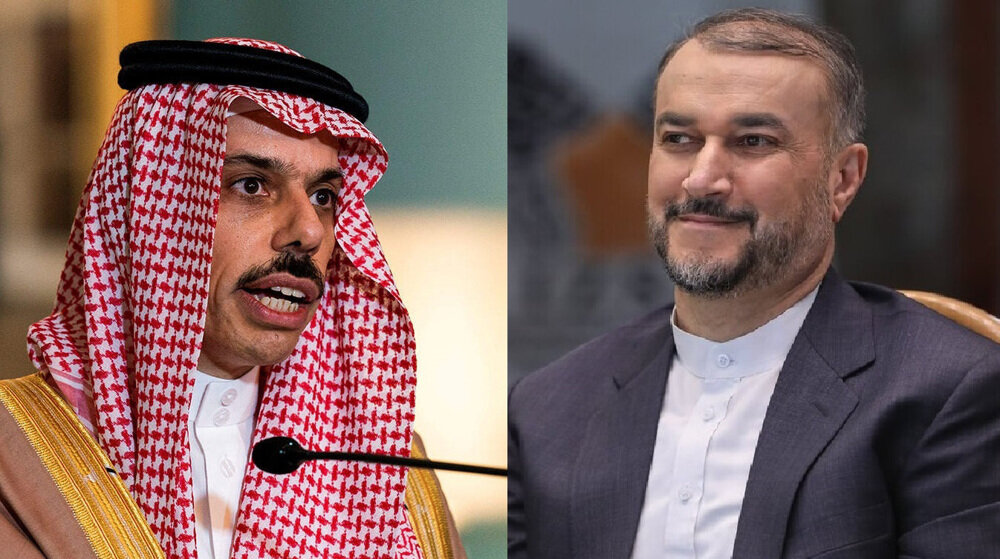Iranian, Saudi foreign ministers hold phone talks, discuss ways to restore ties

TEHRAN - Iranian Foreign Minister and his Saudi counterpart Faisal bin Farhan have held a telephone conversation discussing steps to put the ties between their respective countries back on track.
After five days of intensive negotiations in Beijing earlier this month, Iran and Saudi Arabia agreed to reestablish ties after seven years. The negotiations were mediated by China.
Iran, Saudi Arabia, and China formally issued in a joint statement on March 10 in which it was agreed that Iran and Saudi Arabia restore diplomatic ties within two months. Accordingly, the foreign ministers of Iran and Saudi Arabia were tasked to meet to lay the groundwork for exchange of ambassadors.
In the phone conversation which took place on Thursday, Amir Abdollahian welcomed return of relations back to normal and expressed Tehran’s readiness reinforce ties with the Saudi kingdom. The Saudi chief diplomat also laid emphasis on the need for the two foreign ministers to meet in the near future to set the stage for reopening embassies and consulates general.
It was the first telephone talks between the top Iranian and Saudi diplomats since the ties were broken in 2016.
Prior to the Beijing agreement, Baghdad and Muscat held several rounds of talks between Iran and Saudi Arabia.
Former U.S. Secretary of State Henry Kissinger has said the deal is going to have repercussions for the Israeli regime in the Middle East.
Cited by the Washington Post on Thursday, Kissinger said the deal amounts to "a substantial change in the strategic situation in the Middle East."
Kissinger said the Saudi-Iranian deal would complicate matters for the Israeli regime.
This was due to the fact that Israel would no longer be able to try pressuring Iran as easily as it used to before the agreement was signed, Kissinger noted.
From now on, it would have to "take into account Chinese interests" if it wanted to keep trying to "[mount] pressure on Iran," Kissinger added.
He also said the detente deal amounted to a major step by Beijing in its efforts to have a say in shaping the "world order."
"China has in recent years declared that it needs to be a participant in the creation of the world order. It has now made a significant move in that direction" by mediating the agreement, Kissinger remarked.
